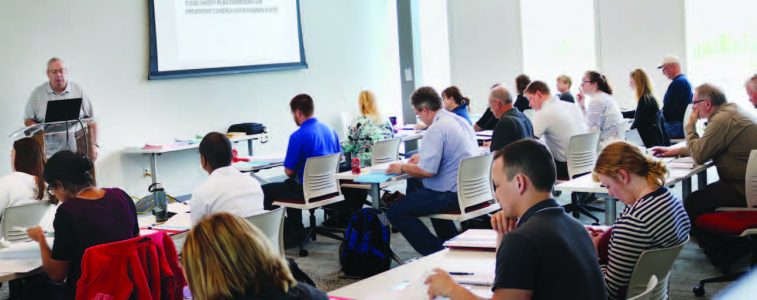
Ron Petersen thought he had it right, but he wasn’t sure.
Petersen, owner of Summertime Potato Company in Des Moines, sought CIRAS’ help last year to make certain that his company was in compliance with the U.S. Food Safety Modernization Act (FSMA), a sweeping 2011 law that gave the FDA new powers to prevent foodborne illness.
The law, a rewrite of the entire U.S. approach to food safety, placed new requirements on manufacturers to document the steps they take to keep food safe. For Petersen’s 17-person potato firm, life suddenly appeared complicated.
“We had really worked hard on our processes and procedures; I just wasn’t sure whether it would be acceptable,” Petersen said. “It’s very overwhelming. We’re blessed to have CIRAS and Iowa State there to help walk us through the law and how it applies to us.”
Summertime Potato is one of a growing number of Iowa companies that are turning to CIRAS for a gap analysis of where their businesses stand in light of the food industry’s now-heightened expectations.
CIRAS account manager Brenda Martin said all companies either are or soon will be focused on formalizing food safety. Companies that haven’t already faced a FSMA compliance deadline soon will—or they’ll be pushed by customers to meet global certification standards that mimic and/or expand on the federal rules.
“If companies want to be competitive, certifications are the next step for everybody,” Martin said. “If you want to be a supplier to human or animal food manufacturers, or if you want to be on the shelves in major retail stores, this is something you’re going to have to do.”
CIRAS’ gap analysis typically starts with examination of a company’s written procedures. If the requisite programs are on track, experts then review employee practices and facility conditions. Company leaders stay involved so they’ll know where time and resources must be allocated. The company also receives a written summary documenting where the firm stands compared to where it needs to be—before the business risks government noncompliance issues or spends money on a global certification audit.
CIRAS then remains available to assist with any problems picked up during the review.
Dan Uthe, one of two consultants who work with CIRAS to perform the assessments, said roughly half the companies he visits just need help writing up procedures. Frequently, food safety managers are just too busy with other job duties to type.
“One of the biggest challenges that we face doing this is that executive management doesn’t understand how much time and how many resources it’s going to take to get it right,” Uthe said. “It’s like eating an elephant. You take it one bite at a time.”
> For more information on food safety gap analysis, contact Brenda Martin at bkmartin@iastate.edu or 515-570-5282.
A version of this article was published in the Summer 2017 edition of CIRAS News. To read more of that edition or others, please explore elsewhere on our website.